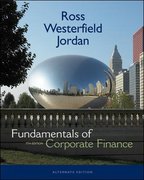Question
Everlast Tire Co, which manufactures automobile tires, sold a shipment of tires to Automotive Wholesaler Inc. Under the terms of that contract, Automotive Wholesaler was
Everlast Tire Co, which manufactures automobile tires, sold a shipment of tires to Automotive Wholesaler Inc. Under the terms of that contract, Automotive Wholesaler was allowed to resell the tires below the price suggested by Everlast if (i) the sub-buyer was a business in the car industry, and (ii) the sub-buyer promised not to resell below the price suggested by Everlast. Automotive Wholesaler then sold the tires to AJs Used Cars Ltd. Under the terms of that contract, AJs, which was engaged in the car industry as a used car dealer, promised Automotive Wholesaler that it would not resell the tires below the price suggested by Everlast. AJs also promised Automotive Wholesaler that if it broke that promise, it would pay $100 to Everlast for each tire that was sold below the manufacturers suggested price. In fact, AJs did sell 10 tires to individual customers at prices that were well below the price suggested by Everlast. Everlast now argues that it is entitled to recover $1000 from AJs. Is that true? If not, does the result seem fair? And if not, what are the simplest means by which Everlast could have arranged the resale of its tires so that it would be able to enforce the promise that AJs made to Automotive Wholesaler?
Step by Step Solution
There are 3 Steps involved in it
Step: 1

Get Instant Access to Expert-Tailored Solutions
See step-by-step solutions with expert insights and AI powered tools for academic success
Step: 2

Step: 3

Ace Your Homework with AI
Get the answers you need in no time with our AI-driven, step-by-step assistance
Get Started


